The year 1962 in film involved some very significant events, with Lawrence of Arabia winning seven Academy Awards including Best Picture and Best Director.
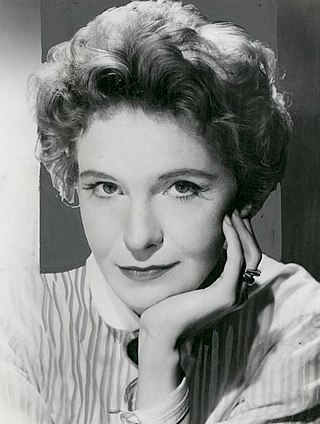
Geraldine Sue Page was an American actress. With a career which spanned four decades across film, stage, and television, Page was the recipient of numerous accolades, including an Academy Award, a British Academy Film Award, two Primetime Emmy Awards, two Golden Globe Awards, and four nominations for the Tony Award.
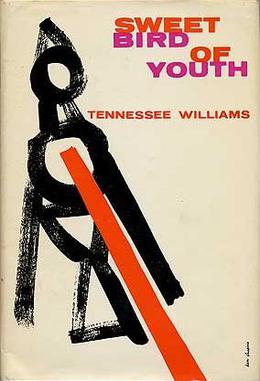
Sweet Bird of Youth is a 1959 play by Tennessee Williams that tells the story of a gigolo and drifter, Chance Wayne, who returns to his hometown as the companion of a faded movie star, Alexandra del Lago, whom he hopes to use to help him break into the movies. The main reason for his homecoming is to get back what he had in his youth, primarily, his old girlfriend, whose father had run him out of town years before. The play was written for Tallulah Bankhead, a good friend of Williams.

Edward James Begley was an American actor of theatre, radio, film, and television. He won an Academy Award for Best Supporting Actor for his performance in the film Sweet Bird of Youth (1962) and appeared in such classics as 12 Angry Men (1957), Odds Against Tomorrow (1959) and The Unsinkable Molly Brown (1964). He was nominated for an Emmy Award for his portrayal of Matthew Harrison Brady in a television adaptation of Inherit the Wind. He is the father of actor and environmental activist Ed Begley Jr.

Mildred Dorothy Dunnock was an American stage and screen actress. She was nominated twice for an Academy Award for her works in Death of a Salesman (1951) and Baby Doll (1956).

Diana Hyland was an American stage, film, and television actress.
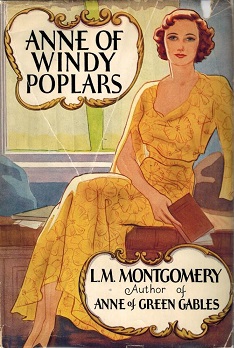
Anne of Windy Poplars—published as Anne of Windy Willows in the UK, Australia, and Japan—is an epistolary novel by Canadian author L. M. Montgomery. First published in 1936 by McClelland and Stewart, it details Anne Shirley's experiences while serving as principal of a high school in Summerside, Prince Edward Island over three years. A large portion of the novel is presented through letters Anne writes to her fiancé, Gilbert Blythe. Chronologically, the book is fourth in the series, but it was the seventh book written.

Shirley Knight Hopkins was an American actress who appeared in more than 50 feature films, television films, television series, and Broadway and Off-Broadway productions in her career, playing leading and character roles. She was a member of the Actors Studio.
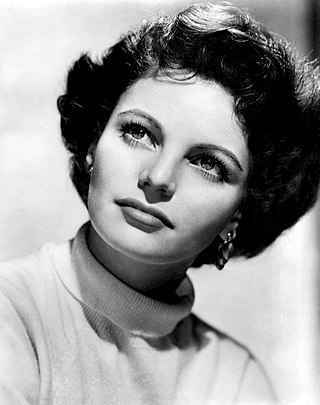
Geraldine Brooks was an American actress whose three-decade career on stage as well as in films and on television was noted with nominations for an Emmy in 1962 and a Tony in 1970. She was married to author Budd Schulberg.
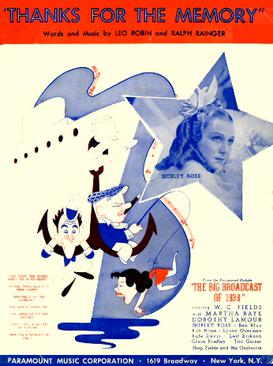
"Thanks for the Memory" (1938) is a popular song composed by Ralph Rainger with lyrics by Leo Robin. It was introduced in the 1938 film The Big Broadcast of 1938 by Bob Hope and Shirley Ross, and recorded by Shep Fields and His Orchestra featuring John Serry Sr. on accordion in the film and vocals by Bob Goday on Bluebird Records. Dorothy Lamour's solo recording of the song was also popular, and has led to many mistakenly believing over the years that it was she who sang the tune with Hope in the film.

Irene Worth, CBE, born Harriett Elizabeth Abrams, was an American stage and screen actress who became one of the leading stars of the British and American theatre. She pronounced her given name with three syllables: "I-REE-nee".

George Duvivier was an American jazz double-bassist.
The 20th Golden Globe Awards, honoring the best in film and television for 1962, were held on March 5, 1963.

Something Wild is a 1961 American neo noir psychological thriller film directed by Jack Garfein, and starring Carroll Baker, Ralph Meeker, and Mildred Dunnock. It follows a young New York City college student who, after being brutally raped, is taken in and held captive by a mechanic who witnessed her suicide attempt on the Manhattan Bridge. The film is based on the 1958 novel Mary Ann by Alex Karmel, who co-wrote the screenplay with Garfein.

What Ever Happened to Aunt Alice? is a 1969 American neo-noir thriller film directed by Lee H. Katzin with Bernard Girard (uncredited), and starring Geraldine Page, Ruth Gordon, Rosemary Forsyth, Robert Fuller and Mildred Dunnock. The screenplay by Theodore Apstein, based on the novel The Forbidden Garden by Ursula Curtiss, focuses on an aging Arizona widow who hires elderly female housekeepers and cons them out of their money before murdering them.

The Silver Horde is a 1930 American pre-Code romantic drama film starring Joel McCrea as a fisherman torn between two women, played by top-billed Evelyn Brent and Jean Arthur.
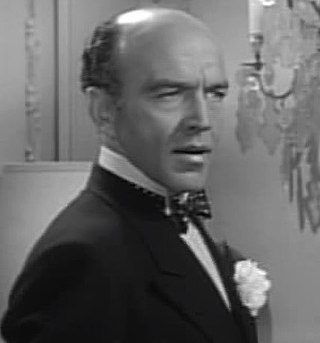
Herbert Berghof was an Austrian-American actor, director and acting teacher.

Youngblood Hawke is a 1964 American drama film directed by Delmer Daves and starring James Franciscus, Suzanne Pleshette, and Geneviève Page. It was adapted from Herman Wouk's 1962 novel of the same name, which was loosely based on the life of Thomas Wolfe.

Nasty Habits is a 1977 comedy film directed by Michael Lindsay-Hogg, starring Glenda Jackson, Melina Mercouri, Geraldine Page, Sandy Dennis, Anne Jackson, Anne Meara and Susan Penhaligon. The screenplay by Robert Enders is based on the 1974 novella The Abbess of Crewe by Muriel Spark.

Sweet Bird of Youth is a 1989 American made-for-television drama film directed by Nicolas Roeg, starring Elizabeth Taylor and Mark Harmon. Adapted from the 1959 Tennessee Williams play of the same name by Gavin Lambert, it focuses on the relationship between a drifter and a faded movie star.


















